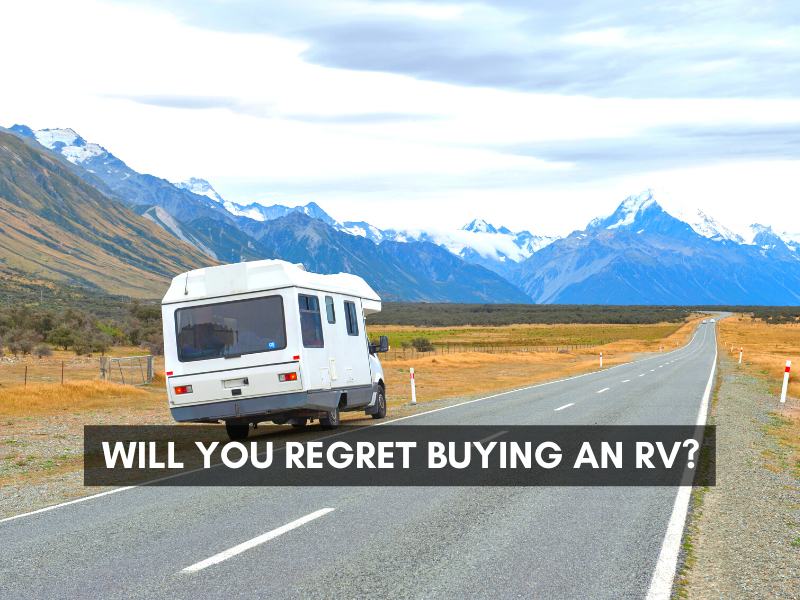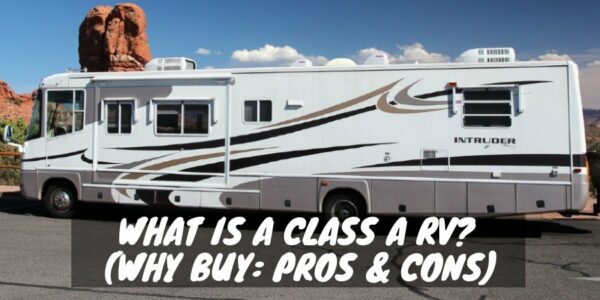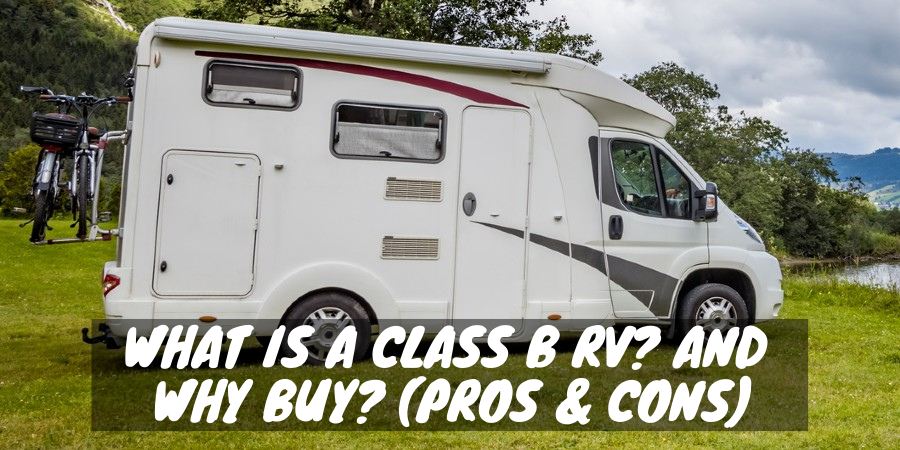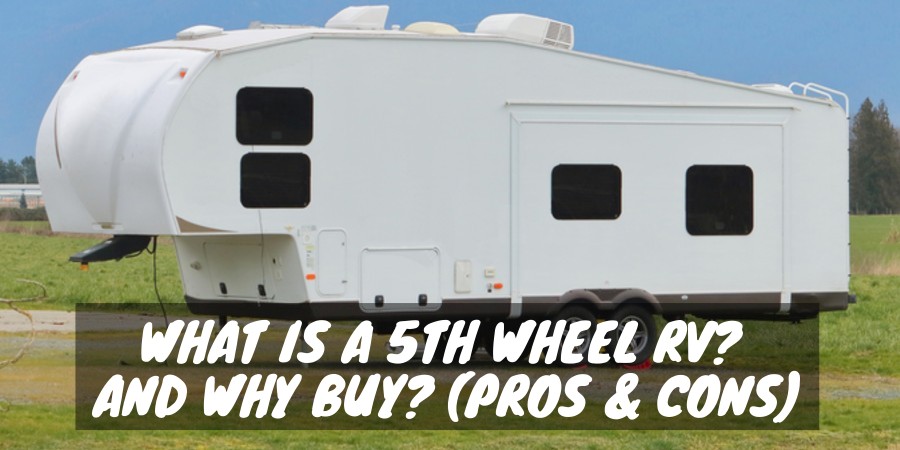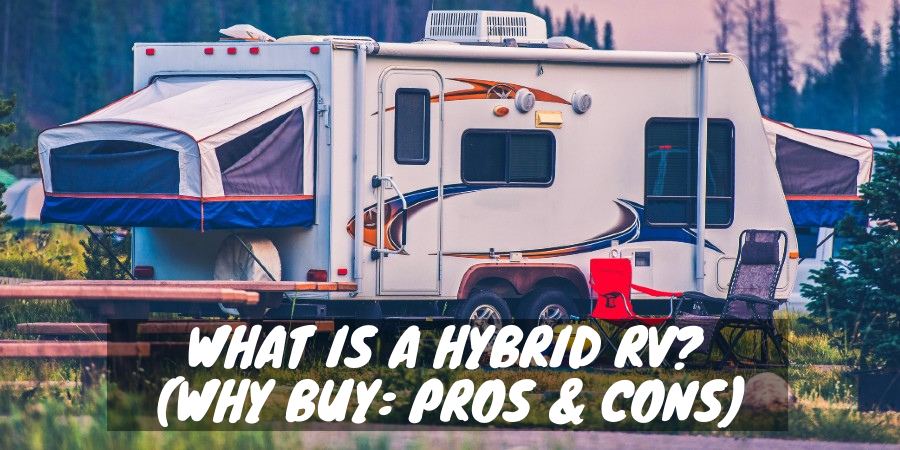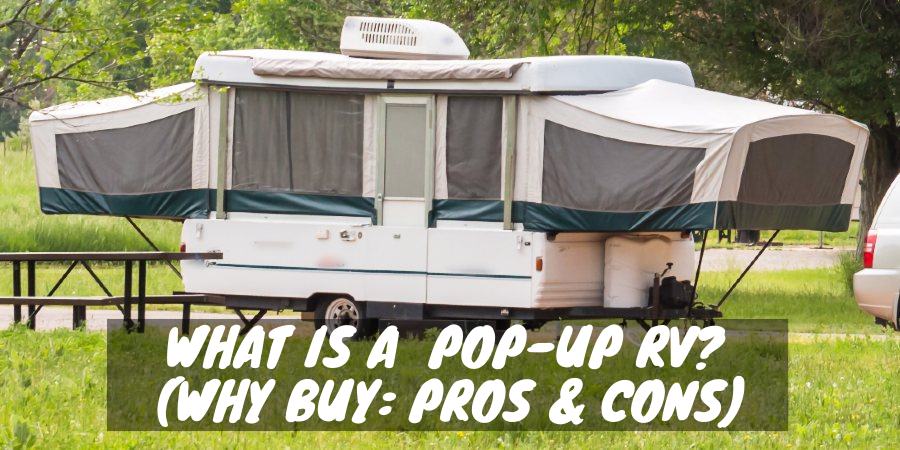Are you thinking of buying an RV but are unsure if it’s a good idea?
There are two types of RV owners: those that embrace the RV lifestyle and those that hate it. The only way to know which category you fall into is to take an RV on several different types of camping trips before you buy.
Will you regret buying an RV? Yes, you will if you don’t consider all the aspects of recreational vehicle ownership that come into play, from general maintenance to campground etiquette.
To help you navigate through the ins and outs of RV ownership and detail expectations versus reality, check out this guide that covers it all so that you can make an informed decision!
Why Buy an RV?
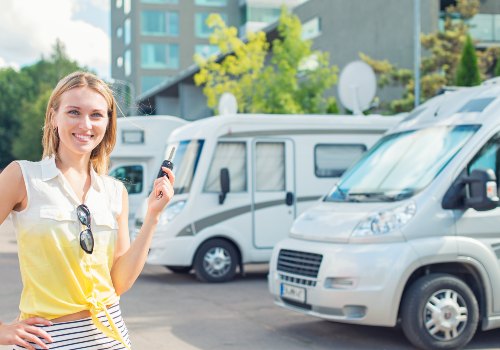
RVing is popular because people find it safer and more comfortable to have a vacation space that only belongs to them versus a hotel room or rental.
For people who enjoy visiting national and state parks, the ability to park your RV at onsite campgrounds puts nature directly at your doorstep.
For people who find tourist destinations to have expensive hotel and restaurant costs, a nearby RV park will provide more affordable nightly rates and give you the ability to cook meals instead of eating out.
If you travel often, you can load up your recreational vehicle with all your gear and keep it there so you can avoid constant packing and unpacking, streamlining your departure routine.
Lastly, RVs come in a wide range of types, sizes, and price points, allowing you to find the ideal combination that fits your needs and budget. For a one-time investment, you give yourself the means to take multiple weekend or weeks-long vacations each year for decades.
RV Ownership Expectations vs. Reality
If you’re considering purchasing a recreational vehicle, you must first consider these expectations people have about the RV lifestyle versus the reality of what you’ll encounter.
1. RVing Is All Fun and Adventure

Not all people can handle the demands of RV ownership and prefer the ease of flying to a vacation destination and having all the comforts of a hotel room.
Most people think of RVing as pulling up to incredible destinations and magically having the campsite set up and ready for s’mores and laughter, and family fun.
The reality is that travel days driving a motorhome or towing a travel trailer or fifth wheel is exhausting and stressful. You need to be extra cautious to avoid accidents, and paying high bills for fuel takes its toll.
Once you do get safely to your campground location, you can only breathe a sigh of relief after you:
- Park your RV
- Level and stabilize the camper
- Open slides or pop-ups
- Connect water, electrical, and sewer lines
- Extend the awning
- Pull out and set up camp chairs, tables, grill, etc.
All of the above takes time, and even though it becomes easier with practice, it’s nothing like checking into a hotel, leaving your suitcases in the room, and hitting the pool.
However, once you have your RV set up, you are good to go for as long as you like. With the ability to book RV campsites for weeks or even months, you can have a mini home-away-from-home with everything you need to be comfortable.
Most private RV parks and state or federally-run campgrounds offer plenty of amenities and entertainment options to keep kids and adults happy. This perk means you don’t have to leave the campground each day to find things to do, which is relaxing and saves money.
2. RVs Require Little Upkeep
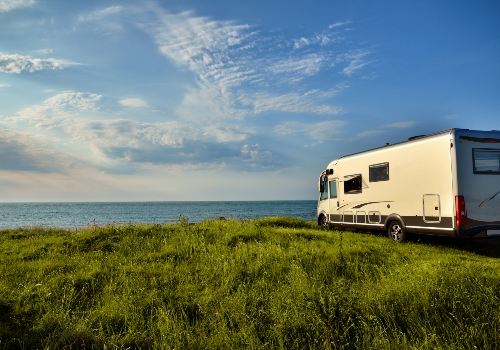
Recreational vehicles should withstand most weather conditions, but that doesn’t mean you can buy one, park it outside, and forget about it until you want to use it.
RVs require regular upkeep to stay in prime condition, much like a traditional brick-and-mortar house.
Aside from washing the camper to keep it clean, you’ll also need to:
- Inspect and reapply caulking on the roof and exterior to stop leaks
- Flush waste tanks and replace sewer valves and hoses as they wear out
- Winterize the plumbing system
- Inspect and tighten any loose plumbing fittings
- Maintain motorhome engines
- Ensure tires are safe
- Maintain house battery system and converter or inverter
- Keep loads under GVWR and balance the weight inside the RV
- Keep propane tanks full and functioning correctly
- Prevent mice or other pests from taking up residence
- Lubricate awning and slide out components
You will also have the occasional need to nail trim work back down or adjust settings on appliances.
Most states also require to have a plate, registration, and insurance, which need yearly renewal.
3. RVing Is an Affordable Travel Option
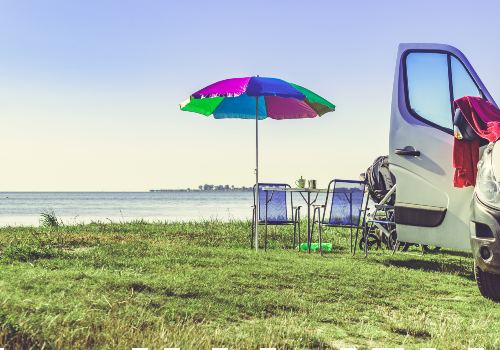
When you compare the total cost of a hotel stay vacation versus an RV vacation, the RV trip will be cheaper, but not as much as you think.
While you’ll save money on room fees and meals, you’ll pay more for fuel to get your RV to its destination. In some hot tourist locations, the nightly cost of a campsite may reach $200 or more.
The cost of RV insurance alone averages between $500-$1,500 a year, which you’ll need to add to the overall cost of ownership. Off-site storage of a large RV isn’t cheap either, averaging $75 a month.
The reality is that if you’re the type who loves to eat out and see all the attractions when on vacation, being in an RV isn’t going to save you money.
While many RVers adapt to a more frugal lifestyle so they can afford to travel to more places, you can also blow your vacation budget quickly without a plan to keep things under control.
With the right passes for entrance to parks, zoos, and museums and taking advantage of all the free activities and attractions a region has to offer, you can have a blast RVing and barely spend a dime on entertainment.
You can save hundreds of dollars versus eating out by cooking meals in the camper.
The bottom line is that while RV travel can be very affordable with planning, it can also be as expensive as any other type of vacation.
4. RVs Provide Vacation Privacy
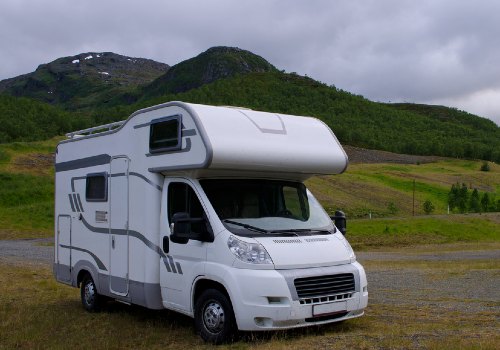
When you RV, you benefit from not having a thin wall between you and other guests in a hotel.
However, most campgrounds don’t put a lot of distance between campsites, with some so close you can reach out and touch your neighbor’s RV.
So, while you have a degree of privacy and space around your RV, the construction of most recreational vehicles doesn’t keep noises under control as much as you would expect.
You will hear loud talking, dogs barking, televisions and radios coming from other RVs (or yours) during your stay, unless you have a private off-grid camping spot all to yourself.
Most RV parks are like little towns, with tightly-packed campsites, a pool, camp store, bathhouses, and roads that people will constantly use for exercise or walking pets. Privacy isn’t quite what you get at these places.
Some campgrounds offer more privacy and space between campsites, so if you do want to feel like you’re “getting away from it all” in your RV, these are the ones you want to book. Check out Hipcamp for unusual camping locations off the beaten path.
Privacy inside the RV is another issue. If you’re camping as a family or couple, don’t expect to have much privacy while you use the bathroom or try to sleep, as everyone else inside will be a few short feet away.
Some people don’t find this closeness troublesome, while others will find it irritating, so you must think about it before buying a camper or you will regret it.
5. RV Life is Simple

The daily RV life takes time to adjust to and is not for everyone. Just because RVs are small, it doesn’t necessarily make them simple to use.
RV SPACE
Even if you own the largest Class A motorhome around, the interior isn’t going to feel spacious after being inside a day or two.
If you only plan to take your RV out for short-term trips, most people can handle the tight confines of a camper. However, if you plan to go full-time RVing or take extended trips, you may find yourself feeling claustrophobic quickly.
RV STUFF
Learning to live with less “stuff” is part of the RV lifestyle.
You cannot overfill the cabinets or storage compartments with belongings because overloading your RV will lead to blowouts and other mechanical failures that are dangerous.
You can’t add many decorative touches that will fall off and break during travel days or have loose furniture that can slip and slide around.
If you have a hard time traveling light, an RV may not be for you.
RV ADJUSTMENTS
RVing also requires you to master taking quick showers before the hot water runs out and learning to cook in tighter quarters or on the grill.
There is nothing simple about following all the steps for safe campsite set-up and tear down, dealing with waste tank dumping, or figuring out what is wrong with a faulty power pedestal.
Your attitude and those of your guests significantly impact how well an RV trip goes off.
RVers need to keep an open mind and adapt quickly to changes in plans or during emergencies. Even one sourpuss in the group will ruin the vacation for everyone else.
6. RVing Has No Rules
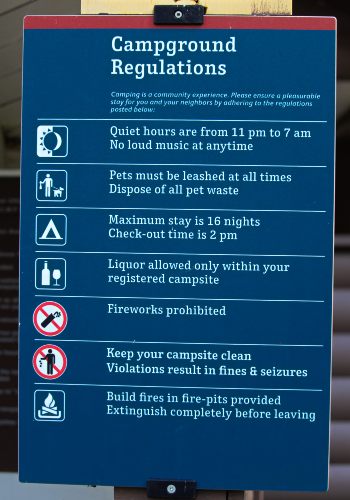
Newbie RVers are the bane of campgrounds and long-term RV owners because most have no idea there are etiquette rules for camping they need to follow so everyone can have an enjoyable time.
These rules apply no matter where you’re camping, even if an RV park doesn’t specifically address them in its campground rules.
Quiet Hours
Not following quiet time hours is the most broken rule and frustrates other campers. Be aware that most campgrounds expect guests to be quiet between 9 or 10 at night and 7 or 8 in the morning.
This rule doesn’t mean you can’t sit outside by the fire or go for a walk. It means no loud talking, blaring the music, letting your dog bark, slamming doors, or banging around in your storage compartments.
Some campgrounds are “party” locations, where you can hang out with other guests well into the night, drinking and laughing and playing games.
Want to Connect With a Community of Over 1,078 RV Enthusiasts?
If you want a more festive camping experience, I suggest researching which RV parks near you welcome a more enthusiastic crowd. Otherwise, you may find yourself getting a visit from campground security or management, who may ask you to leave immediately for breaking the rules.
Respecting the Campsite
Not only do you never walk across another person’s campsite, you certainly don’t let your pet do their business on another person’s site, even if you do plan to clean it up.
Cutting across a campsite is a no-no and leads to confrontations that can get ugly. Some people have pets leashed up outside that may attack you, while others may think you are trying to steal something.
Outside of respecting other people’s campsites, you also need to respect yours by:
- Only parking your RV on the designated parking pad
- Never park your vehicle on the patio
- Never leave trash in bins with no lid
- Ensuring water and sewer lines are free from leaks
- Locking up expensive camping gear
- Never encroaching upon the next campsite
- Keeping pets and small children from roaming
- Never light fireworks or let campfires release floating embers
Keeping Pets Happy

RVing is one of the most pet-friendly ways to travel, with around 70 percent of owners bringing them along on trips.
However, just because RV parks and most RV guests are used to having pets around doesn’t mean you can let them off-leash to run about at your campsite or throughout the park.
Many parks have a dog run for such purposes and otherwise expect you to keep pets on a 6-foot leash at all times.
Pets shouldn’t be left unattended outside your RV. Some RV parks allow you to set up a portable fence at your campsite for pets, while others forbid them.
The biggest complaint from RV guests to management is barking dogs. Leaving dogs outside where traffic and walkers are constantly streaming by easily triggers barking sessions.
If you plan to RV, train your dog to be less sensitive to strangers or vehicles to eliminate the worry you’re going to annoy fellow campers.
The biggest issue with barking dogs is when the owner locks them up inside the RV while the family heads out for a few hours.
While you may think your pet will calm down and be quiet while you’re gone, I’ve had the not-so-lovely experience more times than I can count of incessant barking that became unbearable.
If you leave your pet, please inquire with a neighbor about its behavior to ensure you aren’t ruining other people’s vacations with excessive barking.
Lastly, clean up after your pet. Campground staff gets infuriated when they clean up messes left by lazy pet owners, and other guests find it rude.
Even if you don’t have a bag handy, most RV parks have designated dog-waste receptacles with free bags, so there is no excuse to leave a mess.
RV Arrival or Departure
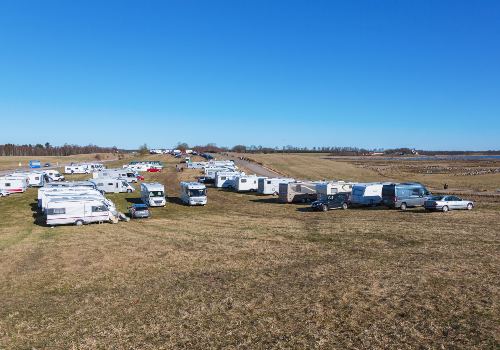
When you see a new RV pull into a campsite near you, don’t go rushing out to greet them and chat them up.
Arriving at a campground and setting up takes time and attention to detail, especially when backing up and parking in tight campsites. Give new guests plenty of time to take care of the business end of RVing before you say hi.
Once the awning and camp chairs are out, that is a good indication guests are welcome to stop by.
When an RVer is ready to break camp and leave, stay away.
Mistakes happen when people are chatting, and they forget a step in their routine, which can lead to disasters such as failing to unplug the camper from the pedestal or putting up their stabilizing jacks or stairs.
Experienced RVers know to say their goodbyes the night before so they don’t interfere with a safe and efficient departure.
Final Thoughts
The decision to buy an RV is a serious matter that involves the nitty-gritty as well as the freedom to travel just about anywhere you want.
Reading the information above should give you a better understanding of what to expect so you won’t regret buying an RV.
I love my RV, and my only regret is not buying one sooner. Others may think they are ready for the RV life and quickly find it doesn’t suit them at all.
Do your research, and rent an RV a few times before committing to a purchase. When you buy an RV, it’s an investment in creating future memories, and you want them to be wonderful!
7 Reasons Why You Should Not Buy an RV (Video)
"Man cannot discover new oceans unless he has the courage to lose sight of the shore."
-- Andre Gide

